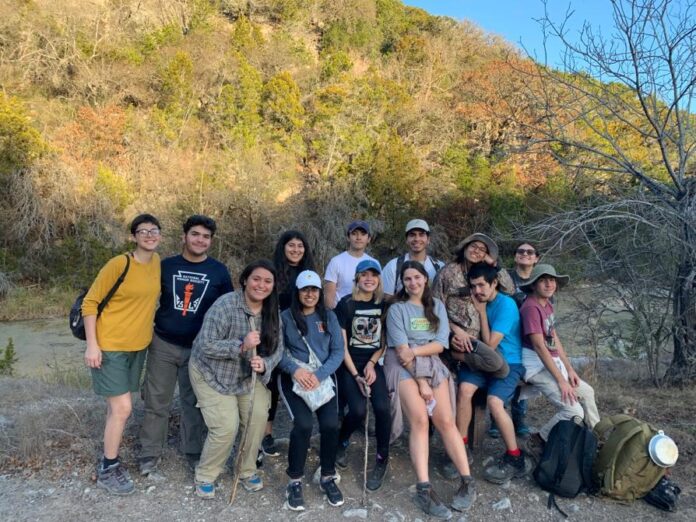Members of the Environmental Awareness Club at the University of Texas Rio Grande Valley decided that nothing — not even a stay-at-home order — would keep them from commemorating Earth Day.
“No pandemic or any obstacle is going to stop us from highlighting and continuing our efforts as a club to raise awareness in the university and in our community of the need to take care of our planet,” said club historian Fatima Garza.
“Climate change doesn’t know a pandemic.”
Initially, the club, which has around 30 members, prepared to host their sixth annual Climate March at Archer Park in McAllen. They had planned for a procession to make its way through downtown McAllen, leading to the park, where a festival would be awaiting. A lineup of speakers, musicians and activities were scheduled to take part in the fair.

Instead, the club translated their event into a virtual, week-long event that led up to April 22, a day designated 50 years ago to demonstrate support for environmental protection. Through various online platforms — including Zoom, Facebook and Instagram — the EAC reached out to both university students and community members to educate them about climate issues, and teach how to be engaged in protecting the environment.
Called “RGV Virtual Earth Day 2020,” the week was kicked off with a live-streamed interview with Roger McManus, an environmental activist who had a role in organizing the events of the first Earth Day in 1970.
Other student-led workshops the club hosted throughout the week taught various environmental-focused lessons, including foraging for native foods, composting and making recycled dot toys. They also have been coordinating a “Community Art Share,” in which students and local residents have been submitting artworks of many forms that portray their connection to nature. So far, they have received more than a hundred pieces of sculptures, paintings and poetry.
Garza emphasized that the EAC has a mission of educating the community on climate change’s effects, both globally and locally.
“It is in our mission statement to make sure that people are aware of the specific ways the RGV would be affected by climate change,” she said. “Everything we are doing is significant and helps the world on a global scale, but people need to know the specific ways our home region would be affected.”
Participants were able to tune into a presentation by National Weather Service meteorologist Barry Goldsmith on the impacts of climate change has on the region’s weather, and another session that discussed how the border wall will change the ecosystems along the Rio Grande.
Defending the wildlife in the Valley is synonymous to preserving access to the Rio Grande, which Garza said is important to many members of the EAC. Several times a semester, the club takes trips to the river as a bonding activity.
Garza said their mission statement talks about protecting the river from border wall construction.
“We urge policymakers to enact pro-climate legislation because the RGV has very vulnerable populations to this,” she said. “With the construction of the border wall on top of climate change, our ecosystem here in the RGV is at risk of collapsing. Building a physical barrier that keeps animals, and ourselves, from the Rio Grande, which essentially gives us life, is dangerous.”

Throughout the semester, club members actively advocate by reaching out to policymakers regarding many local environmental concerns, including protesting the area’s liquefied natural gas projects and the Real ID Act of 2005.
The Real ID Act of 2005 pertains to the construction of the border wall, and allows the Department of Homeland Security to waive certain environmental and Indigenous rights laws in order to more quickly facilitate the construction of the barrier. Those laws include the Clean Air Act and Clean Water Act.
“This is our home, and we are allowing people to come and dehumanize it,” Garza said.
The EAC is active in engaging students in eco-friendly lifestyles. Throughout the semester, the club hosts farmers markets on campus where students can buy vegan conchas and tacos, and environmentally friendly products, such as bamboo toothbrushes and cotton tote bags.
“I decided to join the EAC because I think that it is essential for us to fight for what matters most, and what matters the most is what is currently happening to our planet,” Garza said. “We are losing it right before our eyes. We are limited on time, so it is urgent that we act and take action now. Our club not only embraces the pride we have of our relationship to nature, but we advocate for our environment and stand up for it.”





